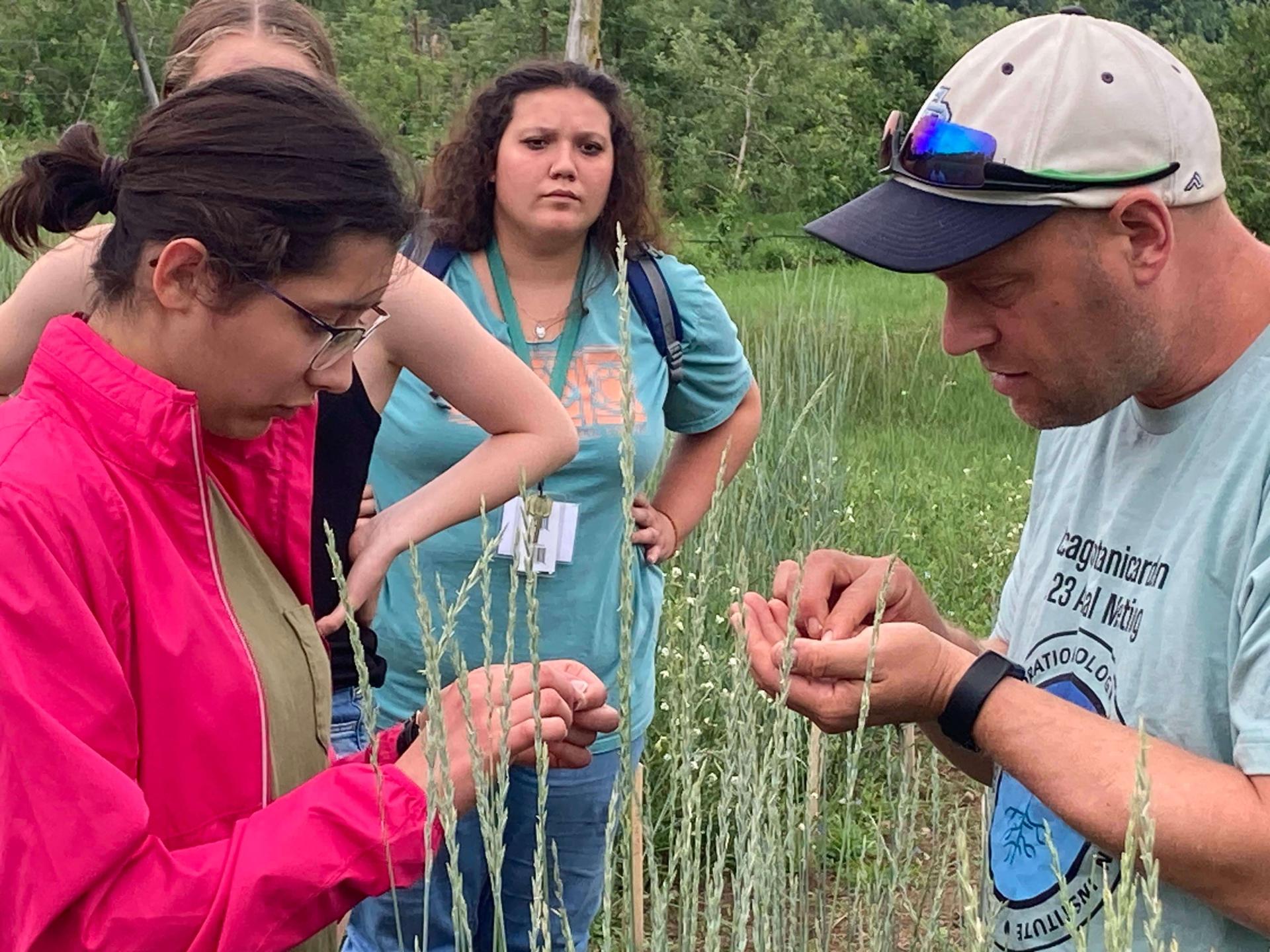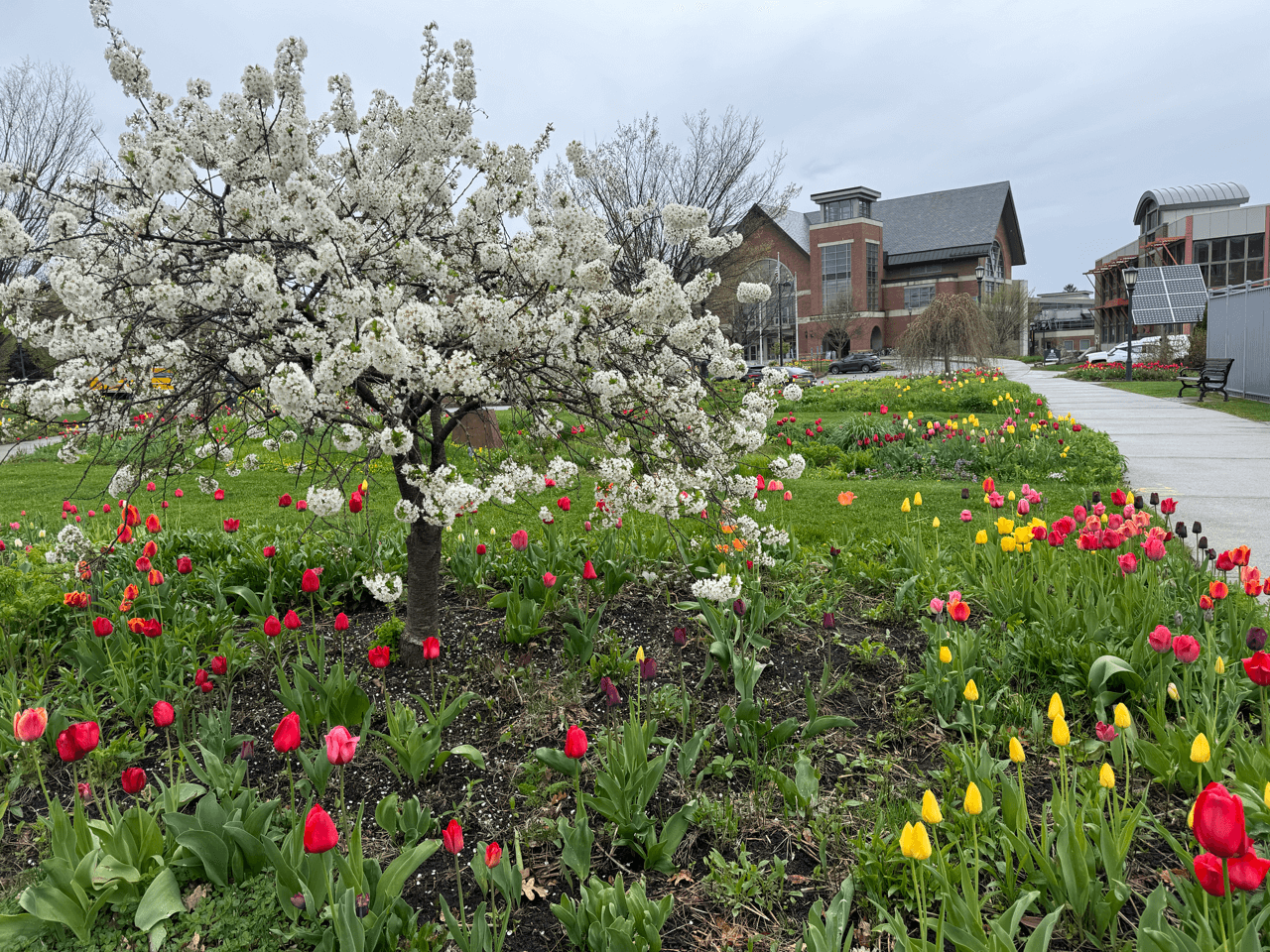Additional Facilities and Labs
Agricultural and Environmental Testing Lab
The Agriculture and Environmental Testing Lab provides analytical services to UVM researchers by housing instrumentation (inductively coupled plasma atomic emission spectrophotometer, ion chromatograph, CNH elemental analyzer, and flow injection autoanalyzer) that is normally not affordable in individual labs. Analysis is available either by hands-on use or a fee-per-sample basis. Training and support are available. Public clients may submit soil samples to the lab for testing.
Cereal Grain and Hops Testing Lab
In the Cereal Grains and Hops Testing Lab, we perform quality analysis on commercial cereal grains, hops, and malting barley samples received from farmers and researchers across the region.
Soil Health Research and Extension Center (SHREC)
SHREC is a cross-disciplinary research and extension hub focused on integrative soil health, offering comprehensive testing services to address stakeholder and researcher needs.
Entomology Research Lab
The Entomology Research Lab represents a team of scientists committed to the development of effective biological control agents for forest, greenhouse and vegetable insect pest management. Insect pest problems are addressed with an interdisciplinary approach, using insights drawn from a diverse group of senior scientists, the assistance of specialized technicians, and graduate students. Emphasis is placed on practical aspects of research to solve ‘real world’ problems. Though focused on agricultural problems of Vermont, our projects have national and international significance as well. Through our work, we attempt to develop management options that are environmentally sound, economically viable and sustainable, and encourage their implementation through outreach and education.
Field Sample Prep Room
The Field Sample Prep Room inside Jeffords Hall houses equipment to analyze texture and stable aggregate of soil and to extract soil nematodes and microarthropods. The room is equipped with soil traps and a floor with a drain to handle volumes of water. A steam sterilization cart is available to disinfest soils of pathogens and movable benches allow the facility to be reconfigured to conduct a multitude of other research tasks.
Plant Diagnostic Clinic
The Plant Diagnostic Clinic serves Vermont clients of greenhouses, farms and orchards by assisting in the identification and control of pests and diseases. The clinic provides gardening pest and disease information through its database of over 60,000 pages of extension fact sheets and bulletins from 46 different universities and government institutions across the US and Canada. Furthermore, the clinic is the state hub for pesticide application training and certification examinations.
Vermont Bee Lab
The Vermont Bee Lab is a research and outreach laboratory located at the University of Vermont. We are dedicated to the protection of pollinators through research, education and outreach.
North American Center for Saffron Research and Development
North American Center for Saffron Research and Development
Saffron is the dried stigmas of a fall-blooming crocus (Crocus sativus). It is used as a culinary spice in Mediterranean dishes and a medicinal herb. It is the most expensive spice in the world, with a retail value of $3,000-9,000/lb.
In 2015, scientists at the University of Vermont (UVM) began studies to determine its suitability as a specialty crop for small diversified farmers in the US. They found it survives cold Vermont winters and the yield and quality of their crop compares with or exceeds saffron from traditional production areas, such as Spain, Iran and Italy. Hundreds of growers across the US and Canada are now growing this crop with promising results.


